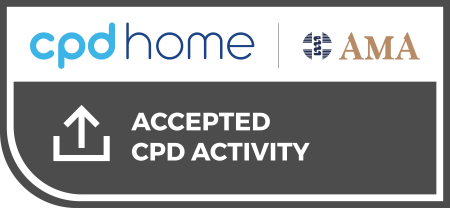This course focuses on one of the most challenging aspects of the AMC Clinical Exam: counselling and communication stations. Designed for International Medical Graduates, it provides a clear structure for handling sensitive discussions confidently and compassionately—whether it's breaking bad news, explaining a diagnosis, addressing non-compliance, or navigating ethical dilemmas.
Built around real recalls, this course teaches you how to structure counselling responses using Australian communication norms, patient-centred language, and culturally safe approaches. With practice-ready scripts and examiner-aligned strategies, it helps you move from vague reassurance to precise, professional dialogue.
What You’ll Learn:
-
Recognise the most common counselling scenarios in the AMC Clinical exam
-
Apply structured frameworks for breaking bad news, explaining risks, and managing difficult emotions
-
Use appropriate language, tone, and non-verbal communication to build rapport
-
Demonstrate insight, empathy, and cultural safety in your responses
-
Anticipate examiner expectations and navigate common pitfalls in counselling stations.
What’s Included:
-
Video-based walkthroughs of high-yield counselling cases
-
Real recall cases with model answers and commentary
-
Structured communication frameworks (e.g., SPIKES, motivational interviewing)
-
Key phrases and strategies for time-limited conversations
-
Examiner insights on what makes a counselling station pass vs borderline.
Target Audience: International Medical Graduates preparing for the AMC Clinical Exam who want to improve their counselling skills and handle communication-based stations with confidence and clarity.
Learning Outcomes
Clinical Communication and Assessment
-
Demonstrate structured, patient-centred approaches to common counselling scenarios in the AMC Clinical Exam
-
Apply frameworks such as SPIKES and motivational interviewing to communicate sensitive information effectively
-
Recognise the emotional, cultural, and psychosocial dimensions of counselling stations
-
Respond empathetically while maintaining clinical clarity and professionalism
-
Address ethical and legal considerations such as confidentiality, informed consent, and patient autonomy.
Specific Clinical Competencies, counsel and manage scenarios involving:
-
Breaking bad news (e.g. cancer diagnosis, chronic illness, miscarriage)
-
Risk communication (e.g. smoking, alcohol, obesity, medication side effects)
-
Poor compliance or non-adherence
-
Mental health discussions (e.g. depression, suicide risk, referral to psychologist)
-
Child safety, elder abuse, and domestic violence
-
Informed consent and shared decision-making for procedures or investigations
-
Cultural, language, or health literacy barriers.
Communication and Cultural Competence
-
Use clear, non-technical language when explaining medical concepts
-
Maintain cultural sensitivity and respect during challenging conversations
-
Build rapport and trust, even in time-limited exam settings
-
Tailor communication to suit the patient’s emotional state, health literacy, and background
-
Demonstrate active listening, validation, and reflective responses.
Exam Performance Skills
-
Respond confidently to examiner interruptions and prompts
-
Manage the 8-minute station effectively without rushing or sounding robotic
-
Use verbal and non-verbal techniques to enhance empathy and authority
-
Avoid common pitfalls such as over-explaining, missing cues, or being overly directive
-
Align communication with AMC domains: Communication, Cultural Safety, Professionalism, and Medical Expertise.
Details
Cost: Varies, depends on your subscription type with Learnmedicine
Disclaimer: Please note, once you click 'Register now' you will be leaving the AMA’s CPD Home website and entering a third-party education provider’s website. If you choose to register for this learning, you will need to provide some of your personal information directly to the third-party education provider. If you have any queries about how third-party education providers use, disclose or store your personal information you should consult their privacy policy.
Upon completion, your CPD activity record may take up to 4 weeks to be reflected on your CPD Home Dashboard.
